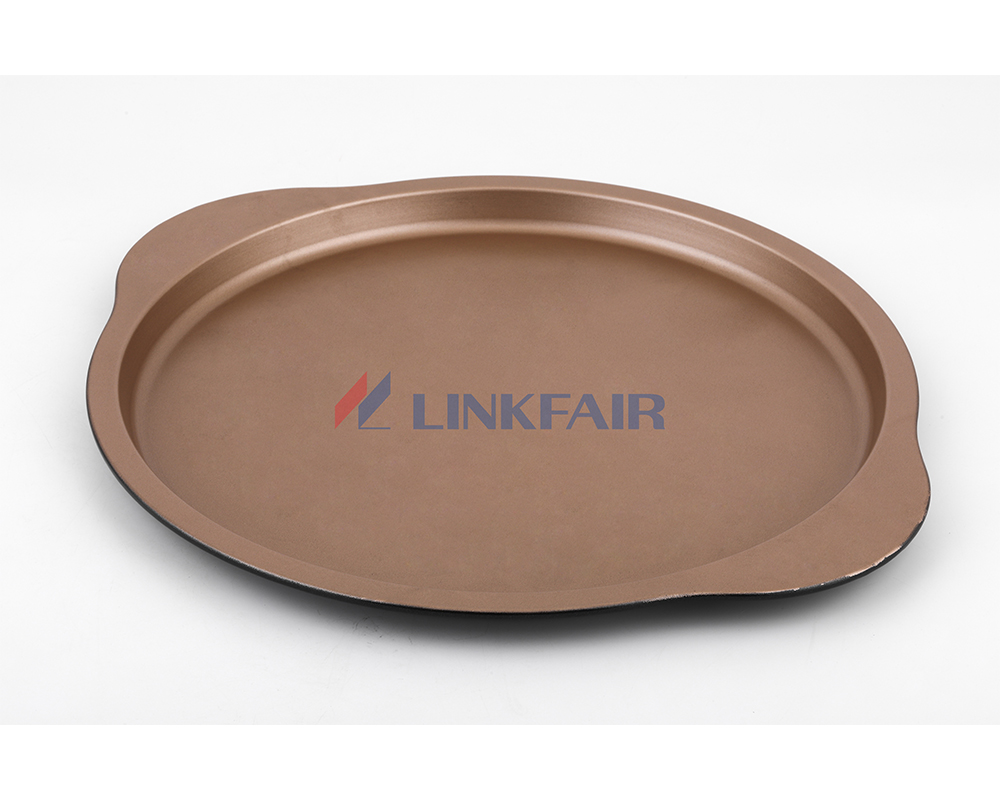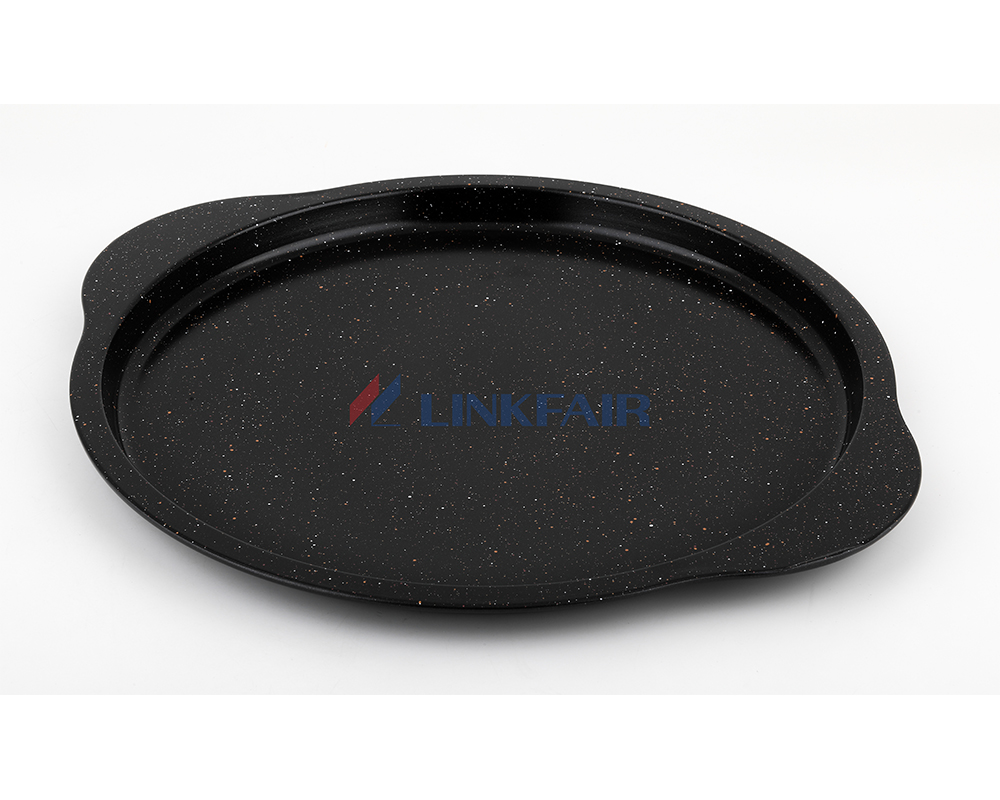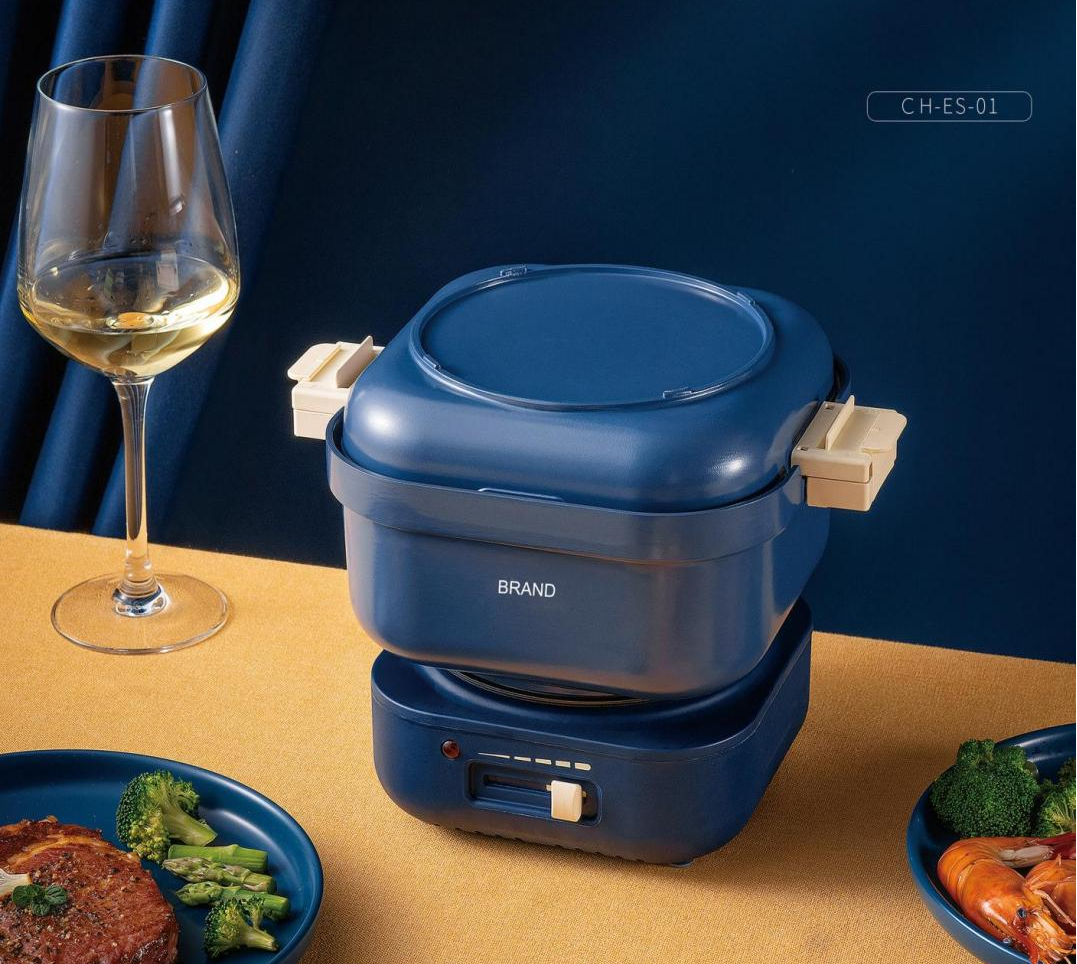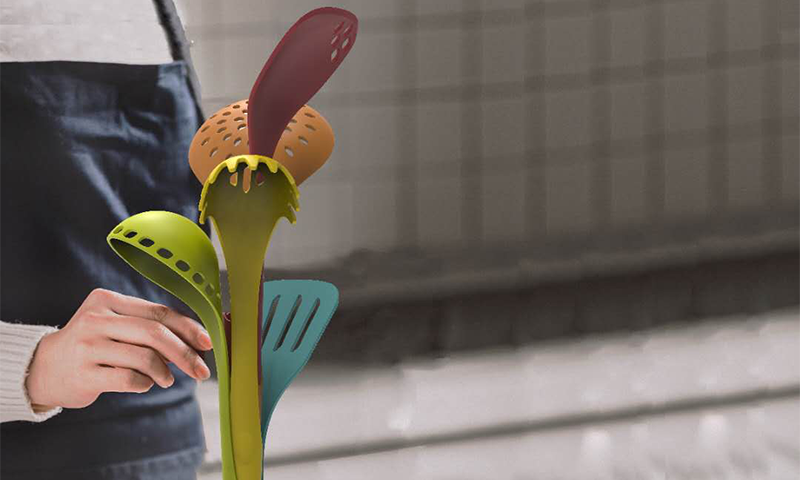
Pizza Pans: Crafting the Perfect Pie
Pizza, a universally beloved dish, transcends geographical boundaries and culinary preferences. It's a culinary canvas where flavors, textures, and creativity collide. Yet, behind every delectable pizza, there's an unsung hero – the pizza pan. In this article, we'll delve into the world of pizza pans, exploring the various types available, how to choose the right one for your needs, and essential maintenance tips to ensure your pans last a lifetime.
Classic Circular Design: Traditional round pizza pans offer even heat distribution and are ideal for creating well-balanced, round pies. The circular shape ensures that your pizza bakes evenly, resulting in a perfectly golden crust.
Material Matters: Stainless Steel, Cast Iron, and More: The choice of material for your round pan affects its performance. Stainless steel pans are durable and resistant to rust, while cast iron pans provide excellent heat retention and a distinct flavor to the crust.
Crafting Deep-Dish Delights: These pans are characterized by their depth, allowing you to layer on generous amounts of toppings and cheese without worrying about spillage. Deep-dish pizzas are a Chicago specialty, and the pan is crucial for achieving that iconic structure.
Non-Stick and Seasoned Options: Deep-dish pans are available in both non-stick and seasoned varieties. Non-stick pans are convenient for easy release, while seasoned pans develop a unique patina over time, enhancing the flavor of your pizza.
Air Circulation for Perfect Crusts: Perforated pans feature small holes that allow for optimal air circulation during baking. This results in a thin, crispy crust that's characteristic of Neapolitan-style pizza.
Ideal for Thin-Crust Pizza: Whether you're making classic Margherita or experimenting with gourmet toppings, perforated pans are the go-to choice for achieving that delightful crunch.
Personal vs. Family-sized Pizzas: Consider your typical pizza-making scenario. If it's a family affair, opt for a larger pan to accommodate everyone's preferences. For solo indulgence, a smaller pan will do.
Ease of Maintenance: Consider the maintenance required for your chosen material. Cast iron pans need seasoning, while stainless steel is known for its resistance to stains and odors.
Deep Dish vs. Thin Crust: The Pan Dilemma: Your choice of pan should align with your preferred pizza style. Deep-dish lovers should opt for deep-dish pans, while thin-crust enthusiasts should explore perforated options.
Building the Perfect Pizza Patina: With each use, your seasoned cast iron pan develops a unique patina that enhances the taste of your pizzas over time. Regular seasoning is key to maintaining this precious layer.
Storing Your Pans to Last: Ensure your pizza pans are completely dry before storing them to prevent rust. Consider hanging them or stacking them with protective layers to prevent scratches.
Types of Pizza Pans
Traditional Round Pans
When you imagine a pizza, chances are you picture it on a classic round pan. These pans come in various sizes, but the design remains timeless.Classic Circular Design: Traditional round pizza pans offer even heat distribution and are ideal for creating well-balanced, round pies. The circular shape ensures that your pizza bakes evenly, resulting in a perfectly golden crust.
Material Matters: Stainless Steel, Cast Iron, and More: The choice of material for your round pan affects its performance. Stainless steel pans are durable and resistant to rust, while cast iron pans provide excellent heat retention and a distinct flavor to the crust.
Deep-Dish Pizza Pans
For those who prefer a pizza with a hearty, deep crust, deep-dish pizza pans are the way to go.Crafting Deep-Dish Delights: These pans are characterized by their depth, allowing you to layer on generous amounts of toppings and cheese without worrying about spillage. Deep-dish pizzas are a Chicago specialty, and the pan is crucial for achieving that iconic structure.
Non-Stick and Seasoned Options: Deep-dish pans are available in both non-stick and seasoned varieties. Non-stick pans are convenient for easy release, while seasoned pans develop a unique patina over time, enhancing the flavor of your pizza.
Perforated Pizza Pans
For pizza aficionados who crave a thin, crispy crust, perforated pizza pans are the answer.Air Circulation for Perfect Crusts: Perforated pans feature small holes that allow for optimal air circulation during baking. This results in a thin, crispy crust that's characteristic of Neapolitan-style pizza.
Ideal for Thin-Crust Pizza: Whether you're making classic Margherita or experimenting with gourmet toppings, perforated pans are the go-to choice for achieving that delightful crunch.
Choosing the Right Pizza Pan
Size Matters
Matching Pan Size to Oven: Ensure your pizza pan fits comfortably in your oven. Oversized pans can lead to uneven cooking, while smaller ones may limit your creativity in pizza-making.Personal vs. Family-sized Pizzas: Consider your typical pizza-making scenario. If it's a family affair, opt for a larger pan to accommodate everyone's preferences. For solo indulgence, a smaller pan will do.
Material Selection
Heat Conductivity and Durability: The material of your pizza pan significantly impacts cooking performance. Stainless steel and cast iron excel in heat distribution, while aluminum pans are lightweight and easy to handle.Ease of Maintenance: Consider the maintenance required for your chosen material. Cast iron pans need seasoning, while stainless steel is known for its resistance to stains and odors.
Pan Shape and Pizza Style
Square Pans for Sicilian Pizza: If you're a fan of thick, square Sicilian pizza, invest in a square pan designed for this purpose. The shape ensures a consistent result.Deep Dish vs. Thin Crust: The Pan Dilemma: Your choice of pan should align with your preferred pizza style. Deep-dish lovers should opt for deep-dish pans, while thin-crust enthusiasts should explore perforated options.
Maintaining and Caring for Your Pizza Pans
Seasoning Cast Iron Pizza Pans
The Art of Cast Iron Maintenance: Seasoning cast iron pans involves coating them with a layer of oil and baking them to create a non-stick surface. This process not only enhances your pizza's flavor but also extends the pan's lifespan.Building the Perfect Pizza Patina: With each use, your seasoned cast iron pan develops a unique patina that enhances the taste of your pizzas over time. Regular seasoning is key to maintaining this precious layer.
Cleaning and Storage
Proper Cleaning Techniques: Avoid using harsh detergents or abrasive tools on your pizza pans. Instead, opt for gentle cleaning with warm water and a soft sponge.Storing Your Pans to Last: Ensure your pizza pans are completely dry before storing them to prevent rust. Consider hanging them or stacking them with protective layers to prevent scratches.







Leave a comment